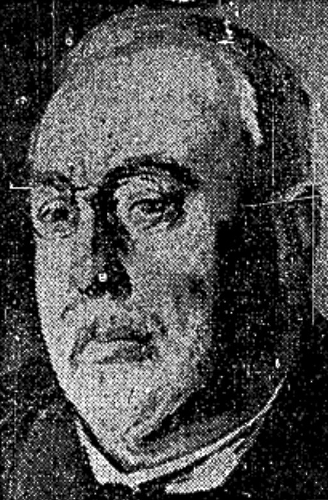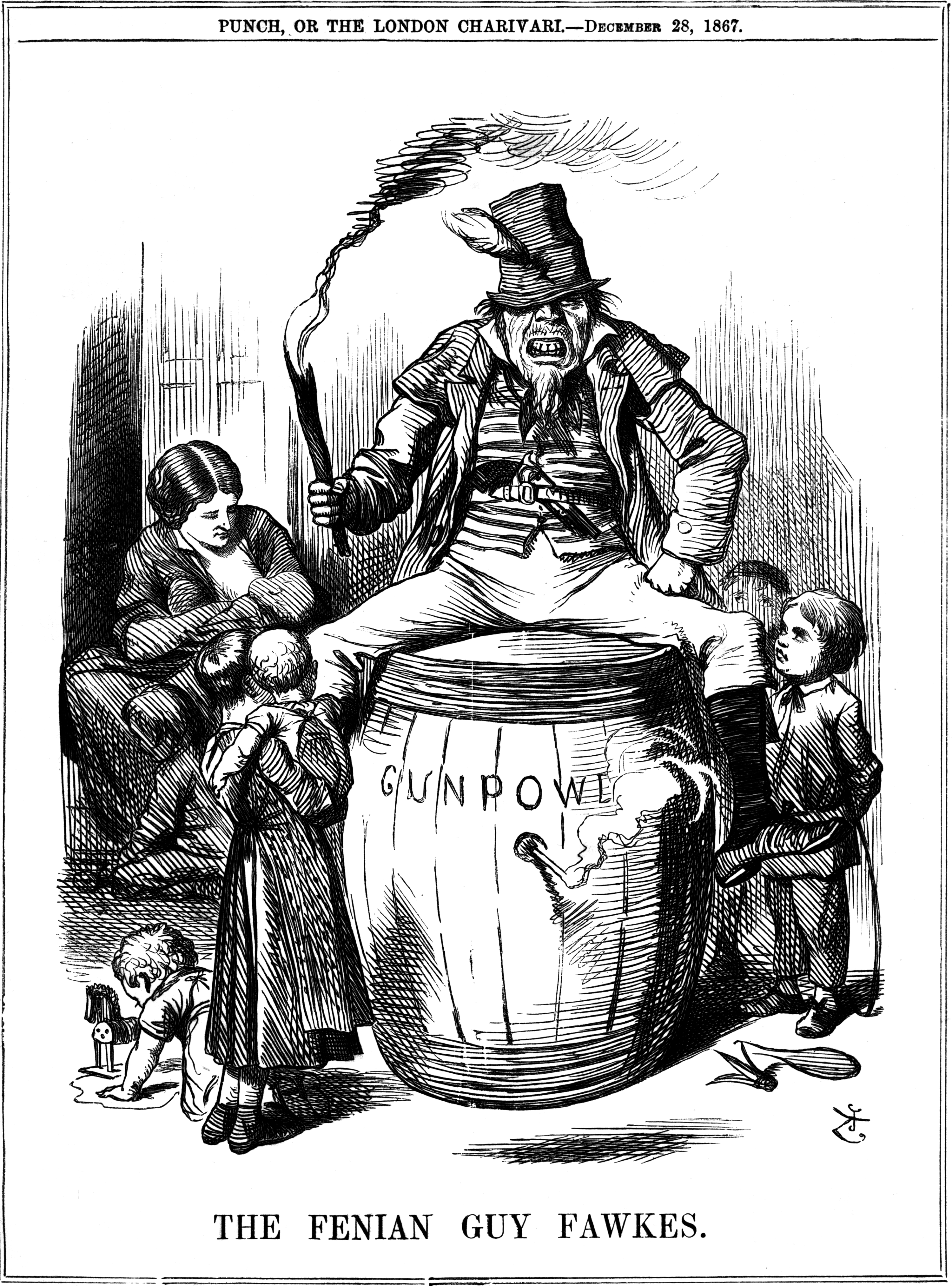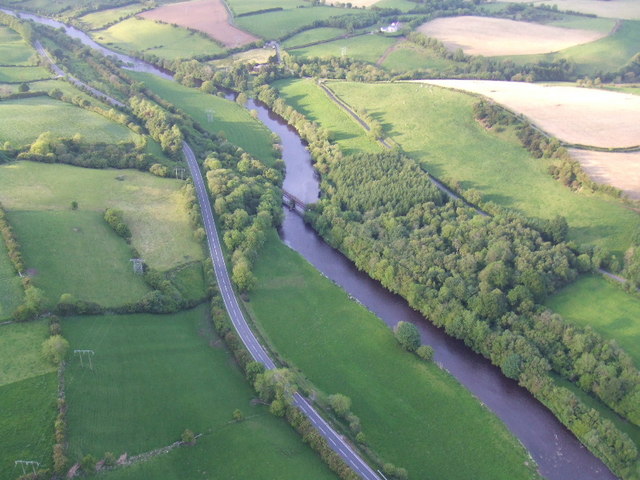|
Brian O'Higgins
Brian O'Higgins ( ga, Brian Ó hUigínn; 1 July 1882 – 10 March 1963), also known as Brian na Banban, was an Irish writer, poet, soldier and politician who was a founding member of Sinn Féin and served as President of the organisation from 1931 to 1933. He was a leading figure within 20th century Irish republicanism and was widely regarded for his literary abilities. Family and early life Brian O'Higgins was born in 1882, the youngest of fourteen children of small farmers in Kilskeer, County Meath. His great grandfather, Seán Ó Huiginn, was a poor scholar from County Tyrone who was travelling to Munster before he encountered a group of men who were rushing to Tara to fight in the Rising of 1798. He promptly decided partake in the rebellion and fought in the Battle of Tara Hill, where he was wounded and carried away to the small glen of Kilskeer to recuperate, but in Kilskeer he married and remained for the rest of his life. His father and uncles were members of the Irish ... [...More Info...] [...Related Items...] OR: [Wikipedia] [Google] [Baidu] |
President Of Sinn Féin
The president of Sinn Féin ( ga, Uachtarán Shinn Féin) is the most senior politician within the Sinn Féin political party in Ireland. Since 10 February 2018, the office has been held by Mary Lou McDonald, following the decision of Gerry Adams to stand down as leader of the party and not seek re-election again. Unlike other political parties, the president of Sinn Féin does not have the power to dismiss or appoint their deputy and to dismiss or appoint parliamentary party members to front bench positions. These decisions are taken by the Ard Chomhairle (National Executive). If the president is not a member of Dáil Éireann, then a TD is appointed in their place to act as the leader of the parliamentary party. The vice president of Sinn Féin is Michelle O'Neill. Background Although Sinn Féin was founded in 1905 by Arthur Griffith, Griffith did not initially take the presidency. Edward Martyn, a cultural activist and playwright, was elected president at the party's first ... [...More Info...] [...Related Items...] OR: [Wikipedia] [Google] [Baidu] |
Volunteer
Volunteering is a voluntary act of an individual or group freely giving time and labor for community service. Many volunteers are specifically trained in the areas they work, such as medicine, education, or emergency rescue. Others serve on an as-needed basis, such as in response to a natural disaster. Etymology and history The verb was first recorded in 1755. It was derived from the noun ''volunteer'', in 1600, "one who offers himself for military service," from the Middle French ''voluntaire''. In the non-military sense, the word was first recorded during the 1630s. The word ''volunteering'' has more recent usage—still predominantly military—coinciding with the phrase ''community service''. In a military context, a volunteer army is a military body whose soldiers chose to enter service, as opposed to having been conscripted. Such volunteers do not work "for free" and are given regular pay. 19th century During this time, America experienced the Great Awakening. Peo ... [...More Info...] [...Related Items...] OR: [Wikipedia] [Google] [Baidu] |
Young Ireland
Young Ireland ( ga, Éire Óg, ) was a political movement, political and cultural movement, cultural movement in the 1840s committed to an all-Ireland struggle for independence and democratic reform. Grouped around the Dublin weekly ''The Nation (Irish newspaper), The Nation'', it took issue with the compromises and clericalism of the larger national movement, Daniel O'Connell's Repeal Association, from which it seceded in 1847. Despairing, in the face of the Great Irish Famine, Great Famine, of any other course, in 1848 Young Irelanders attempted an insurrection. Following the arrest and the exile of most of their leading figures, the movement split between those who carried the commitment to "physical force" forward into the Irish Republican Brotherhood, and those who sought to build a "League of North and South" linking an Independent Irish Party, independent Irish parliamentary party to tenant agitation for land reform. Origins The Historical Society Many of those later ide ... [...More Info...] [...Related Items...] OR: [Wikipedia] [Google] [Baidu] |
Thomas Davis (Young Irelander)
Thomas Osborne Davis (14 October 1814 – 16 September 1845) was an Irish writer; with Charles Gavan Duffy and John Blake Dillon, a founding editor of ''The Nation,'' the weekly organ of what came to be known as the Young Ireland movement. While embracing the common cause of a representative, national government for Ireland, Davis took issue with the nationalist leader Daniel O'Connell by arguing for the common ("mixed") education of Catholics and Protestants and by advocating for Irish as the national language. Early life Thomas Davis was born on 14 October 1814, in Mallow, County Cork, fourth and last child of James Davis, a Welsh surgeon in the Royal Artillery based for many years in Dublin, and an Irish mother. His father died in Exeter a month before his birth, en route to serve in the Peninsular War. His mother was Protestant, but also related to the Chiefs of Clan O'Sullivan of Beare, members of the Gaelic nobility of Ireland. His mother had enough money to live on her ... [...More Info...] [...Related Items...] OR: [Wikipedia] [Google] [Baidu] |
Charles Stewart Parnell
Charles Stewart Parnell (27 June 1846 – 6 October 1891) was an Irish nationalist politician who served as a Member of Parliament (MP) from 1875 to 1891, also acting as Leader of the Home Rule League from 1880 to 1882 and then Leader of the Irish Parliamentary Party from 1882 to 1891. His party held the balance of power in the House of Commons during the Home Rule debates of 1885–1886. Born into a powerful Anglo-Irish Protestant landowning family in County Wicklow, he was a land reform agitator and founder of the Irish National Land League in 1879. He became leader of the Home Rule League, operating independently of the Liberal Party, winning great influence by his balancing of constitutional, radical, and economic issues, and by his skillful use of parliamentary procedure. He was imprisoned in Kilmainham Gaol, Dublin, in 1882, but he was released when he renounced violent extra-Parliamentary action. The same year, he reformed the Home Rule League as the Irish Parliamen ... [...More Info...] [...Related Items...] OR: [Wikipedia] [Google] [Baidu] |
Fenian Rising
The Fenian Rising of 1867 ( ga, Éirí Amach na bhFíníní, 1867, ) was a rebellion against British rule in Ireland, organised by the Irish Republican Brotherhood (IRB). After the suppression of the ''Irish People'' newspaper in September 1865, disaffection among Irish radical nationalists continued to smoulder, and during the later part of 1866, IRB leader James Stephens endeavoured to raise funds in the United States for a fresh rising planned for the following year. However the rising of 1867 proved poorly organised. A brief rising took place in County Kerry in February, followed by an attempt at nationwide insurrection, including an attempt to take Dublin in early March. Due to poor planning and British infiltration of the nationalists, the rebellion never got off the ground. Most of the leaders in Ireland were arrested, but although some of them were sentenced to death, none suffered execution. There followed a series of attacks in England aimed at freeing Fenian prisone ... [...More Info...] [...Related Items...] OR: [Wikipedia] [Google] [Baidu] |
Irish Republican Brotherhood
The Irish Republican Brotherhood (IRB; ) was a secret oath-bound fraternal organisation dedicated to the establishment of an "independent democratic republic" in Ireland between 1858 and 1924.McGee, p. 15. Its counterpart in the United States of America was initially the Fenian Brotherhood, but from the 1870s it was Clan na Gael. The members of both wings of the movement are often referred to as " Fenians". The IRB played an important role in the history of Ireland, as the chief advocate of republicanism during the campaign for Ireland's independence from the United Kingdom, successor to movements such as the United Irishmen of the 1790s and the Young Irelanders of the 1840s. As part of the New Departure of the 1870s–80s, IRB members attempted to democratise the Home Rule League. and its successor, the Irish Parliamentary Party, as well as taking part in the Land War. The IRB staged the Easter Rising in 1916, which led to the establishment of the first Dáil Éireann in 1919 ... [...More Info...] [...Related Items...] OR: [Wikipedia] [Google] [Baidu] |
Battle Of Tara Hill
The Battle of Tara Hill was fought on the evening of 26 May 1798 between British forces and Irish rebels involved in the Irish Rebellion of 1798, resulting in a heavy defeat for the rebels and the end of the rebellion in County Meath. Background Following the outbreak of the rebellion signaled in Meath by the prearranged signal of the seizing of a mail coach near Turvey hill, road blocks were posted on the Navan road United Irishmen and rebels in Meath began to assemble at the hill of Tara. Tara was chosen as it provided strategic control of road access to the capital Dublin and cultural significance as the former seat of the high kings of Ireland. Between 4,000-7,000 rebels gathered at the hill. There were incidents of violent encounters throughout the countryside as rallying rebels made their way to Tara from the outbreak of the rebellion on the 23rd to the day of the battle on the 26th. Battle of Tara Picking up yeomanry reinforcements along the way, the combined fencible ... [...More Info...] [...Related Items...] OR: [Wikipedia] [Google] [Baidu] |
Irish Rebellion Of 1798
The Irish Rebellion of 1798 ( ga, Éirí Amach 1798; Ulster-Scots: ''The Hurries'') was a major uprising against British rule in Ireland. The main organising force was the Society of United Irishmen, a republican revolutionary group influenced by the ideas of the American and French revolutions: originally formed by Presbyterian radicals angry at being shut out of power by the Anglican establishment, they were joined by many from the majority Catholic population. Following some initial successes, particularly in County Wexford, the uprising was suppressed by government militia and yeomanry forces, reinforced by units of the British Army, with a civilian and combatant death toll estimated between 10,000 and 50,000. A French expeditionary force landed in County Mayo in August in support of the rebels: despite victory at Castlebar, they were also eventually defeated. The aftermath of the Rebellion led to the passing of the Acts of Union 1800, merging the Parliament of Ireland ... [...More Info...] [...Related Items...] OR: [Wikipedia] [Google] [Baidu] |
County Tyrone
County Tyrone (; ) is one of the six Counties of Northern Ireland, counties of Northern Ireland, one of the nine counties of Ulster and one of the thirty-two traditional Counties of Ireland, counties of Ireland. It is no longer used as an administrative division for local government but retains a strong identity in popular culture. Adjoined to the south-west shore of Lough Neagh, the county covers an area of and has a population of about 177,986; its county town is Omagh. The county derives its name and general geographic location from Tír Eoghain, a Gaelic kingdom under the O'Neill dynasty which existed until the 17th century. Name The name ''Tyrone'' is derived , the name given to the conquests made by the Cenél nEógain from the provinces of Airgíalla and Ulaid.Art Cosgrove (2008); "A New History of Ireland, Volume II: Medieval Ireland 1169-1534". Oxford University Press. Historically, it was anglicised as ''Tirowen'' or ''Tyrowen'', which are closer to the Irish pronunci ... [...More Info...] [...Related Items...] OR: [Wikipedia] [Google] [Baidu] |
Dictionary Of Irish Biography
The ''Dictionary of Irish Biography'' (DIB) is a biographical dictionary of notable Irish people and people not born in the country who had notable careers in Ireland, including both Northern Ireland and the Republic of Ireland.Dictionary of Irish Biography 9 Volume Set History The work was supervised by a board of editors which included the historian . It was published as a nine-volume set in 2009 by |
Irish Republicanism
Irish republicanism ( ga, poblachtánachas Éireannach) is the political movement for the unity and independence of Ireland under a republic. Irish republicans view British rule in any part of Ireland as inherently illegitimate. The development of nationalist and democratic sentiment throughout Europe in the eighteenth and nineteenth centuries, distilled into the contemporary ideology known as republican radicalism, was reflected in Ireland in the emergence of republicanism, in opposition to British rule. Discrimination against Catholics and Protestant nonconformists, attempts by the British administration to suppress Irish culture, and the belief that Ireland was economically disadvantaged as a result of the Acts of Union were among the specific factors leading to such opposition. The Society of United Irishmen, formed in 1791 and led primarily by liberal Protestants, launched the 1798 Rebellion with the help of troops sent by Revolutionary France, but the uprising f ... [...More Info...] [...Related Items...] OR: [Wikipedia] [Google] [Baidu] |




_Irish_Frankenstein.jpg)



